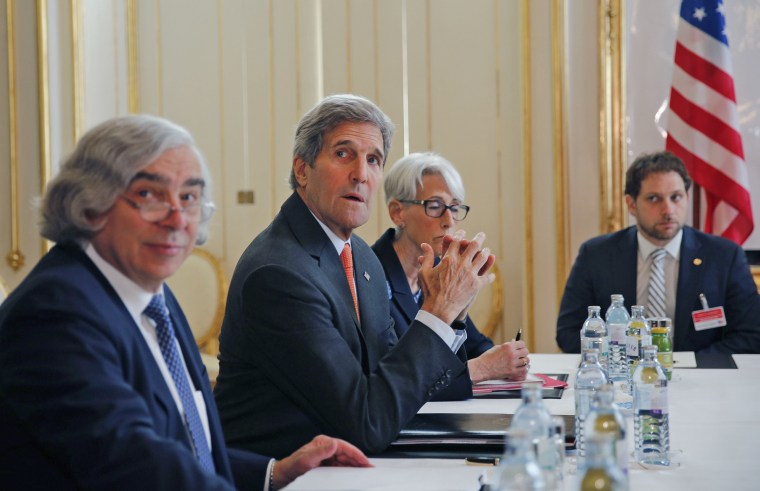Negotiators from the U.S. and five other world powers working to craft framework of a deal with Iran to keep it from developing nuclear weapons have agreed to extend talks to July.
This will give negotiators time to reach a comprehensive solution.
This will also keep in place restraints on Iran's nuclear program — and the flow of some money to Tehran — past today's deadline.
Despite recent statements from the Ayatollah Ali Khamenei indicating Iran could be backtracking from the "framework" agreement negotiated in Lausanne in April, a senior U.S official in Vienna said on Monday. "The agreement will be based on the Lausanne parameters. Period. "
The White House echoed a similar hardline.
"If the Iranians refuse to agree to final agreement that's not consistent with framework there won't be an agreement," White House press secretary Josh Earnest said on Monday.
A senior Western official told NBC News that the UN's nuclear monitoring agency — the International Atomic Energy Agency — is expected to issue a report Wednesday confirming that Iran has lived up to a key commitment it undertook to reduce its stockpile of nuclear fuel that could be used for weapons.
Iran agreed under the preliminary plan of action signed by both sides in November of 2013 to change a large amount of enriched uranium into a form that can't be used for nuclear arms. Technically, this means Iran has converted the enriched uranium into an oxide form, which is very difficult to be used to build a bomb.
